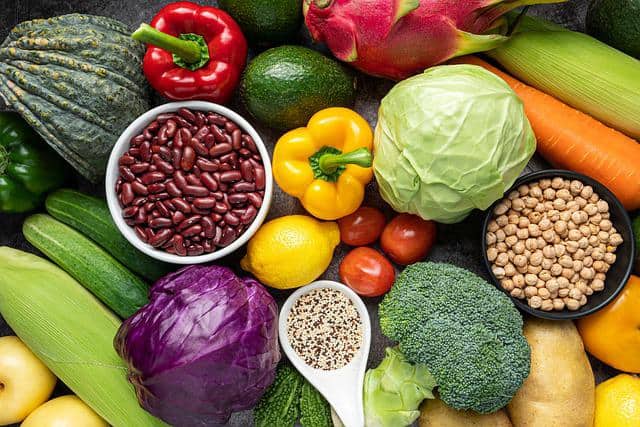-By: Bhavisha Changrani
In the pursuit of holistic well-being, the intricate relationship between mental health and nutrition has emerged as a focal point of scientific inquiry and public interest. The saying “you are what you eat” takes on a deeper significance when considering the profound impact that our dietary choices can have on mental well-being. This article delves into the intricate interplay between nutrition and mental health, exploring how the foods we consume can influence mood, cognitive function, and overall mental resilience.T

The Gut-Brain Connection
Recent research has uncovered a fascinating link between the gut and the brain, emphasizing the importance of a healthy gut microbiome for mental well-being. The gut-brain axis, a bidirectional communication system between the central nervous system and the gastrointestinal tract, plays a crucial role in regulating mood and cognitive function. Probiotics, found in fermented foods like yogurt and kimchi, can contribute to a flourishing gut microbiome, potentially influencing mental health positively.
Nutrients for Neurotransmitter Production
Certain nutrients play a pivotal role in the production of neurotransmitters, the chemical messengers that facilitate communication between brain cells. For instance, omega-3 fatty acids, abundant in fatty fish, walnuts, and flaxseeds, are essential for brain health and have been linked to a reduced risk of depression. Likewise, foods rich in tryptophan, such as turkey, eggs, and dairy products, support the synthesis of serotonin, a neurotransmitter associated with mood regulation.
Balancing Blood Sugar Levels
The impact of blood sugar levels on mood and energy levels is well-established. Consuming a balanced diet that includes complex carbohydrates, fiber, and healthy fats helps regulate blood sugar, preventing the energy crashes that can contribute to irritability and anxiety. Choosing whole grains, fruits, vegetables, and nuts over refined sugars and processed foods promotes stable blood sugar levels and sustained mental clarity.

Micronutrients and Mental Resilience
Adequate intake of micronutrients, including vitamins and minerals, is essential for maintaining mental resilience. Vitamin D, commonly known as the “sunshine vitamin,” has been correlated with a reduced risk of depression. This essential nutrient, obtained through exposure to sunlight and dietary sources, has demonstrated a connection to mental well-being in various studies. Adequate levels of Vitamin D have been associated with a lower incidence of depressive symptoms, emphasizing the importance of maintaining optimal vitamin D status for overall mental. Health foods like fatty fish, fortified dairy products, and exposure to sunlight contribute to vitamin D levels. Additionally, B-vitamins, found in leafy greens, legumes, and whole grains, play a role in neurotransmitter synthesis and cognitive function.
The Role of Antioxidants
Antioxidants, present in fruits, vegetables, and nuts, protect the brain from oxidative stress and inflammation. These compounds have been linked to a lower risk of cognitive decline and mood disorders. Incorporating a variety of colorful, nutrient-dense foods into the diet ensures a rich supply of antioxidants, supporting both physical and mental well-being.
Practical Tips for Mental Health through Nutrition
Diverse, Whole Foods Diet

Prioritize a varied diet rich in fruits, vegetables, whole grains, lean proteins, and healthy fats to ensure a broad spectrum of nutrients.
Hydration
Proper hydration is essential for cognitive function
Limit Processed Foods
Minimize the intake of processed and sugary foods, as they can contribute to inflammation and negatively impact mood.
Moderate Caffeine and Alcohol
While moderate consumption of caffeine and alcohol is generally acceptable, excessive intake can disrupt sleep patterns and affect mental well-being.
Mindful Eating
Pay attention to hunger and fullness cues, and practice mindful eating to enhance the connection between nutrition and mental satisfaction.
Conclusion
As we navigate the complexities of modern life, recognizing the integral link between mental health and nutrition is paramount. By making informed dietary choices, we not only nourish our bodies but also cultivate a resilient and balanced mind. Embracing a holistic approach that considers both mental and physical well-being paves the way for a healthier, more fulfilling life.













